If you imagine the research analyst as the quiet colleague sitting in solitude, spending endless hours analyzing research, you are, well… wrong. Despite being an entry-level position, the research analyst role is much more dynamic and important than meets the eye, as it involves day-to-day interactions with various teams and the opportunity to communicate with multiple stakeholders in the organization. Moreover, it can be the gateway to a rewarding career in analytics and data science.
So, in this article, we’ll shed light on what you need to become a research analyst.
You’ll learn who the research analyst is, what they do, how much they make, and what skills and degree you need to become one.
You can also check out the video on the topic below, download our free infographic, or scroll down if you prefer reading.
What Is a Research Analyst and How Do They Fit Inside a Company?
Research analysts work closely with the master data team to define what data will be necessary for particular research topics and to review data quality. They also collaborate with the project team to define research questions, organize the data collection process, and, finally, report findings to the project or team lead.
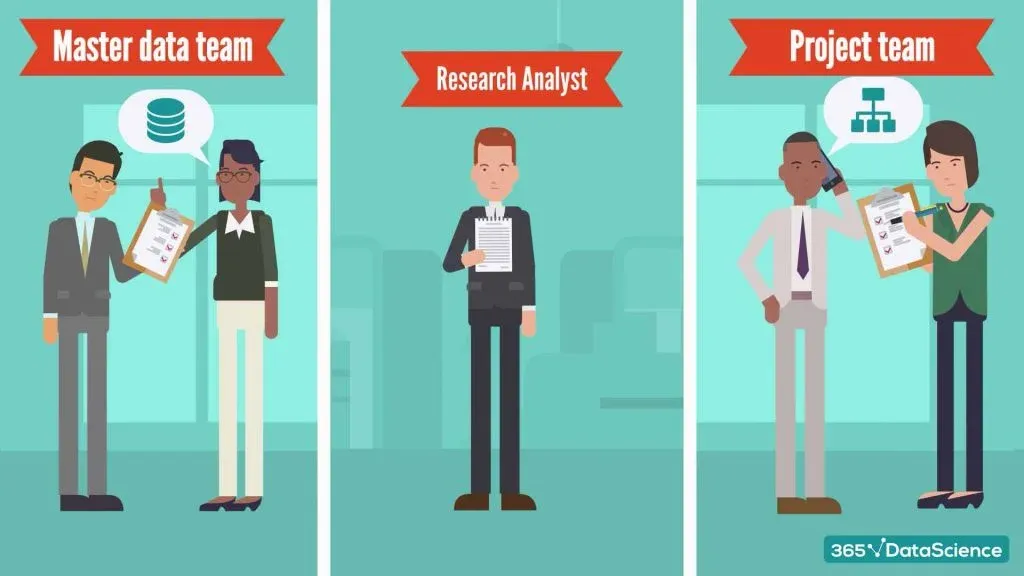
A research analyst receives special requests and investigates certain topics ad-hoc to support the stakeholders’ decision-making process on a frequent basis. Moreover, they also serve as task lead for a wide range of research-related activities across departments within the company. That’s quite a lot of different responsibilities and certainly no time to get bored on the job.

So, this is the brief profile of this interesting job role. But to get a better idea of what it’s like to be a research analyst, you need to get familiar with their typical duties in terms of activities.
What Does a Research Analyst Do?
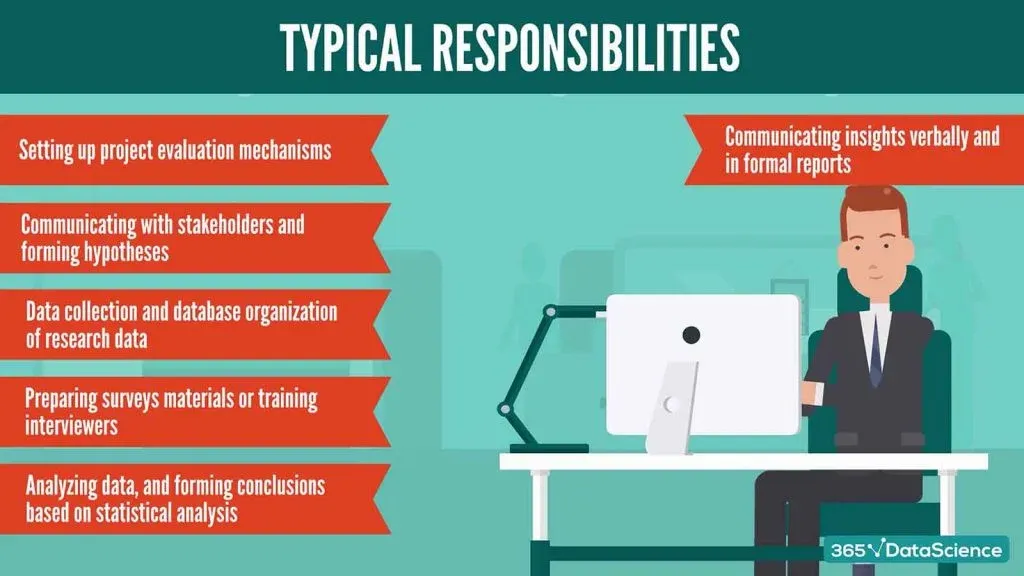
As mentioned, research analysts are busy with numerous versatile tasks. Here’s a shortlist of their most typical responsibilities:
- Working with project teams to set up project evaluation mechanisms;
- Communicating with different stakeholders and forming hypotheses to be tested;
- Data collection and database organization of research data;
- Collaborating with marketing or other divisions to prepare survey materials or to train interviewers collecting qualitative data;
- Analyzing data, and forming conclusions based on statistical analysis;
- Communicating insights verbally and in formal reports.
So, if you can see yourself thriving in this job role, you’ll probably be curious to find out more about the financial aspect, as well.
What Is the Research Analyst Salary?

How much does a research analyst make? And what is the entry level research analyst salary? According to Glassdoor, a research analyst makes \$56,893 on average. That said, if you’re an entry level research analyst, expect a median salary of \$40k a year. Of course, once you become junior research analyst, your earnings are bound to increase. Not to mention that senior research analyst salaries can amount to \$84k!
What Is the Research Analyst Career Path?
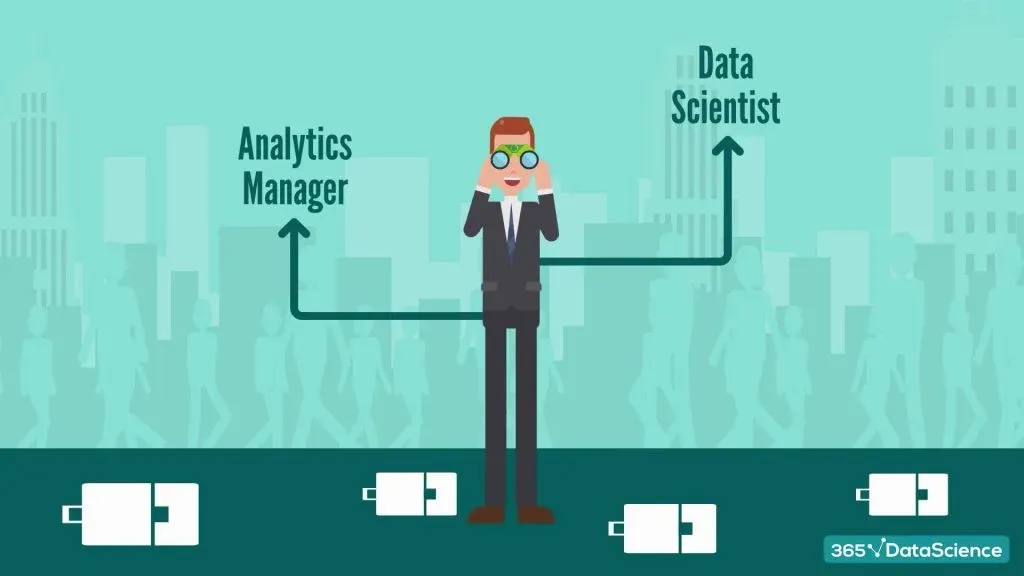
А research analyst job can pave the way for career success as a market research analyst, operations research analyst, senior research analyst, an analytics manager and why not even a data scientist further down the road?
In fact, when it comes to job outlook of research analyst careers, research analyst positions are typically high in-demand in large companies oriented towards analytical data-driven decision making. What's more, research analysts are hired across a wide range of industries, including the Consumer, FMCG, and Pharmaceutical fields.
What Are the Key Skills You Need to Apply for Research Analyst Jobs?
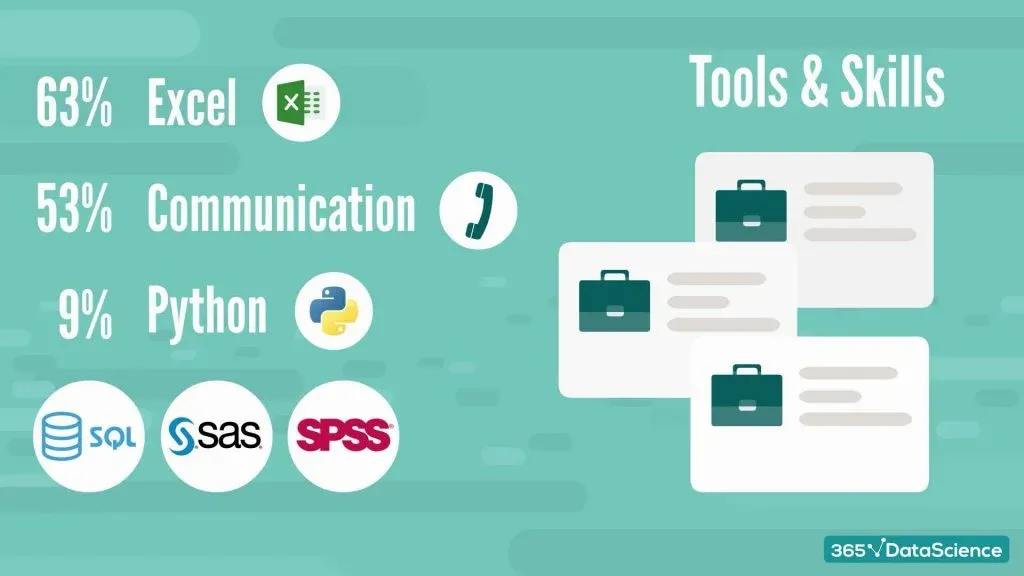
To give the most accurate answer, we looked into currently active job postings to discover the in-demand tools and research analyst skills an eligible candidate must have… Just like a data research analyst would do! Here’s what we discovered:
- 63% of job postings emphasized Excel skills
- 53% mentioned strong communication
- And 9 % requested Python
Other notable research analyst qualifications include SQL, SAS, SPSS.
What Is the Required Research Analyst Education?

Unsurprisingly, 81% of job posts, that is, almost every research analyst job description, require a Bachelor’s degree, preferably with a concentration in IT, Economics. Statistics, Engineering, Mathematics, or Data Science.
What Is the Necessary Research Analyst Experience?
In terms of years on the job, the average expected experience is 3.37 years. That makes the research analyst job a low-hanging fruit compared to other roles in analytics and data science.
However, you shouldn’t jump to the conclusion that it’s easy to become one. You need to understand research methods, statistics and statistical modeling, and possess domain knowledge. Technical skills, database administration, and working with large quantities of data are a must, as well. Moreover, formulating hypotheses and A/B testing are also frequent prerequisites in job postings (even for entry-level research analyst jobs). So, you should definitely add these to your research analyst resume.
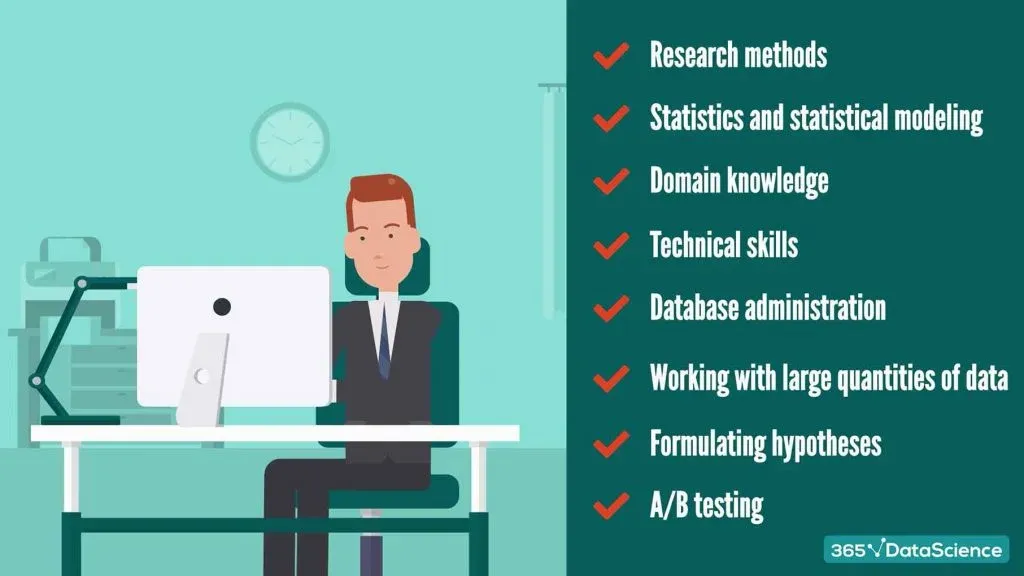
Research Analyst Role: Overview
So, it turns out research analysts and data scientists have much more in common than you would think at first. Both professions need high statistics skills. At the same time, research analysts must be able to formulate a research question and determine how it can be answered numerically. And, although they have a limited arsenal in terms of programming abilities and don’t use advanced statistical tools such as neural networks, a good research analyst needs most of the other technical skills required for a data scientist.
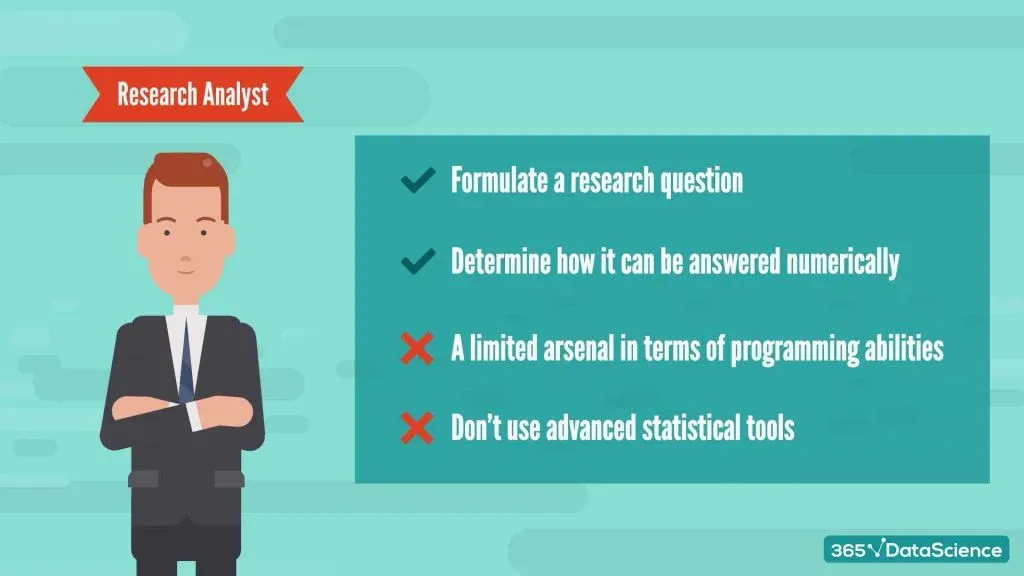
Now you’re aware of the most important aspects of the research analyst position, what to expect from the job, and what skills to focus on to become one.
Nevertheless, if you feel like you still need additional career advice and a more detailed analysis of the career opportunities in data science, check out our course Starting a Career in Data Science: Project Portfolio, Resume, and Interview Process.




![Data Scientist Job Outlook 2025 [Research on 1,000 Job Postings]](https://365datascience.com/resources/blog/thumb@360_9i9eyv5957g-data-scientist-job-market-research-2025.webp)

![AI Engineer Job Outlook 2025 [Research on 1,000 Job Postings]](https://365datascience.com/resources/blog/thumb@360_zap2iyp8btk-ai-engineer-job-market-thumb.webp)